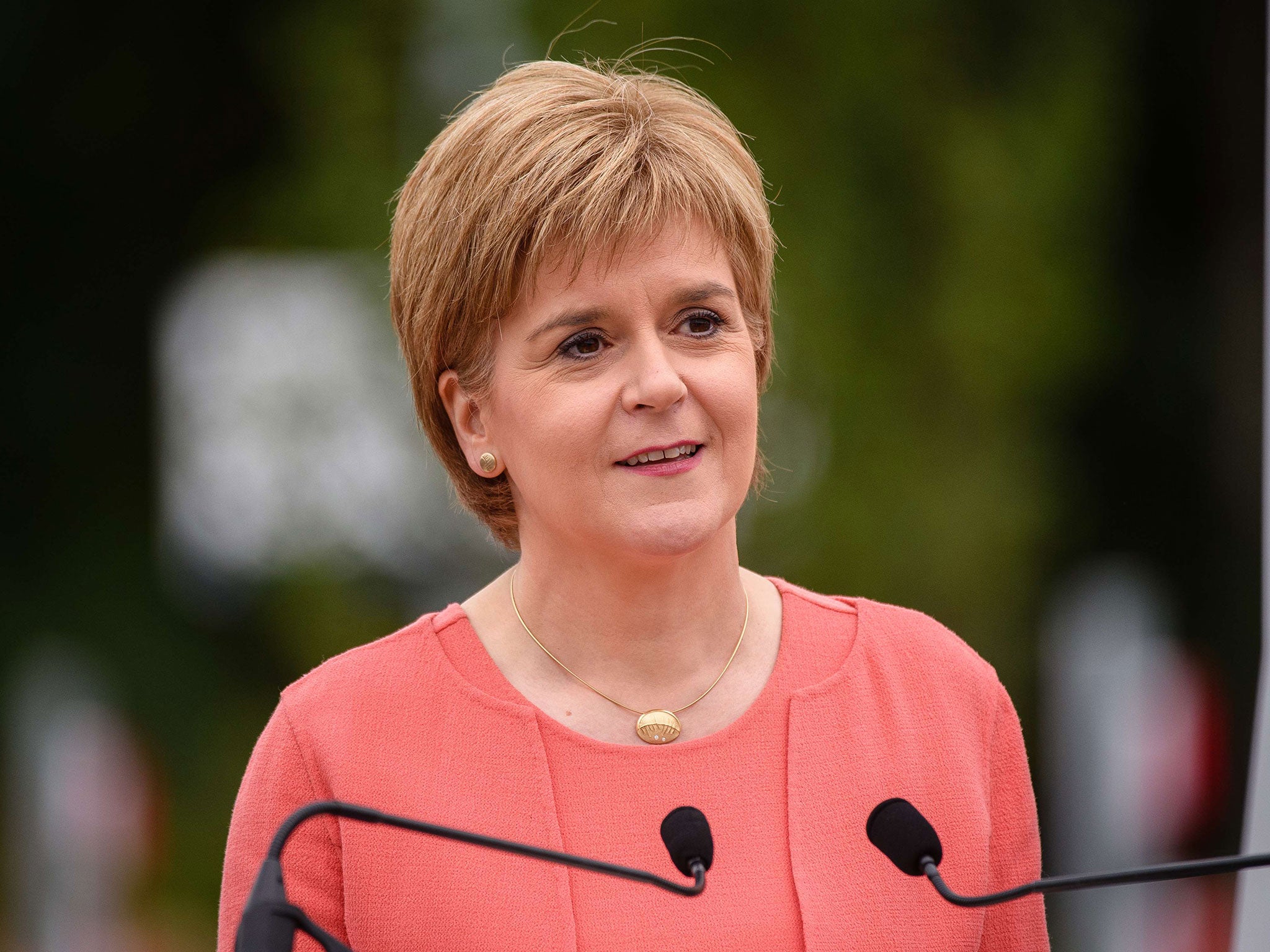Second Scottish independence referendum could come within five years if SNP decides 'circumstances' are right
Nicola Sturgeon says party's next manifesto would include timescale for vote

A second referendum on Scottish independence could take place within five years if the SNP wins next year’s Holyrood election and decides that the “circumstances” are right, according to the party’s senior leadership.
Nicola Sturgeon said the SNP’s manifesto for the Scottish Parliament elections in 2016 would include a timescale for another vote on whether Scotland should break away from the Union, which she said could happen “in five years or 10 years or whenever”.
The manifesto will include a list of possible events which the SNP feels would warrant calling another referendum, such as the UK voting to leave the European Union in 2017 against the wishes of Scotland, the First Minister said.
Stewart Hosie, the party’s deputy leader, suggested yesterday that a failure by the UK Government to keep its promises on the devolution of further powers to Holyrood could also trigger a second vote, adding that any Prime Minister who tried to prevent a referendum from taking place would be “very, very foolish”.
A few days before last year’s vote, the then SNP leader Alex Salmond described the referendum as a “once in a generation opportunity”. However, a year on from Scotland voting to remain in the Union, support for independence has risen and the SNP’s membership has surged. The party now dominates the country’s political landscape, having recorded a landslide victory at the general election.
“Our manifesto will set out what we consider are the circumstances and the timescale on which a second referendum might be appropriate, but we can only propose,” Ms Sturgeon said. “It’s then for people in Scotland, whether it is in this election or in future elections, to decide whether they want to vote for our manifesto and then if there is in the future another independence referendum, whether that’s in five years or 10 years or whenever, it will be down to the people of Scotland to decide whether they want to vote for independence or not.
“So at every single stage this is something that is driven by and decided by the people of Scotland, not by politicians.”
Ms Sturgeon has come under pressure from party members and opposition leaders to clarify her position on a second vote ahead of next month’s SNP conference in Aberdeen. She has previously said that a “material change” in the country’s circumstances would trigger another referendum.
Scottish Conservative leader Ruth Davidson criticised the First Minister’s latest comments, arguing that most people in Scotland wanted to “put last year’s referendum behind them and get on with life”. Ian Murray, Labour’s Shadow Scottish secretary, accused the SNP of being “stuck in the arguments of the past”.
Recent polls have suggested that a majority of Scots now support independence, which Ms Sturgeon said did not surprise her “in the slightest”. She ascribed the change to the actions of the Conservative Government, accusing it of failing to deliver the further powers it promised ahead of the referendum.
One of the country’s leading political commentators has suggested that the only way to secure popular support for more devolution, rather than full independence, would be to hold a separate referendum on the subject.
In a new report, the polling expert Professor John Curtice said: “Quite why the advocates of more devolution in Scotland should want to eschew the possibility of demonstrating public support for their answer to the country’s constitutional debate is far from clear.
“Their reluctance certainly gives the impression that they are more interested in elite manoeuvring than in matching the ability of the SNP to develop a popular movement.”
Join our commenting forum
Join thought-provoking conversations, follow other Independent readers and see their replies
Comments
Bookmark popover
Removed from bookmarks